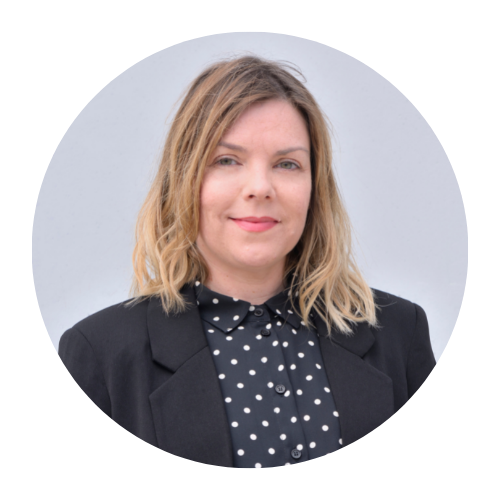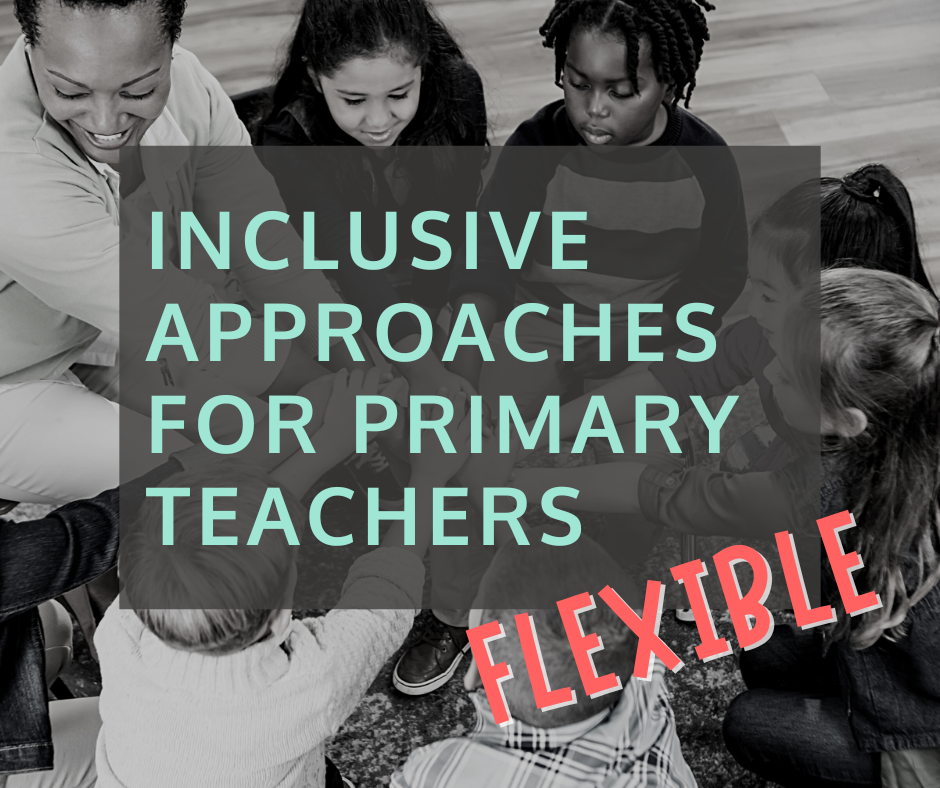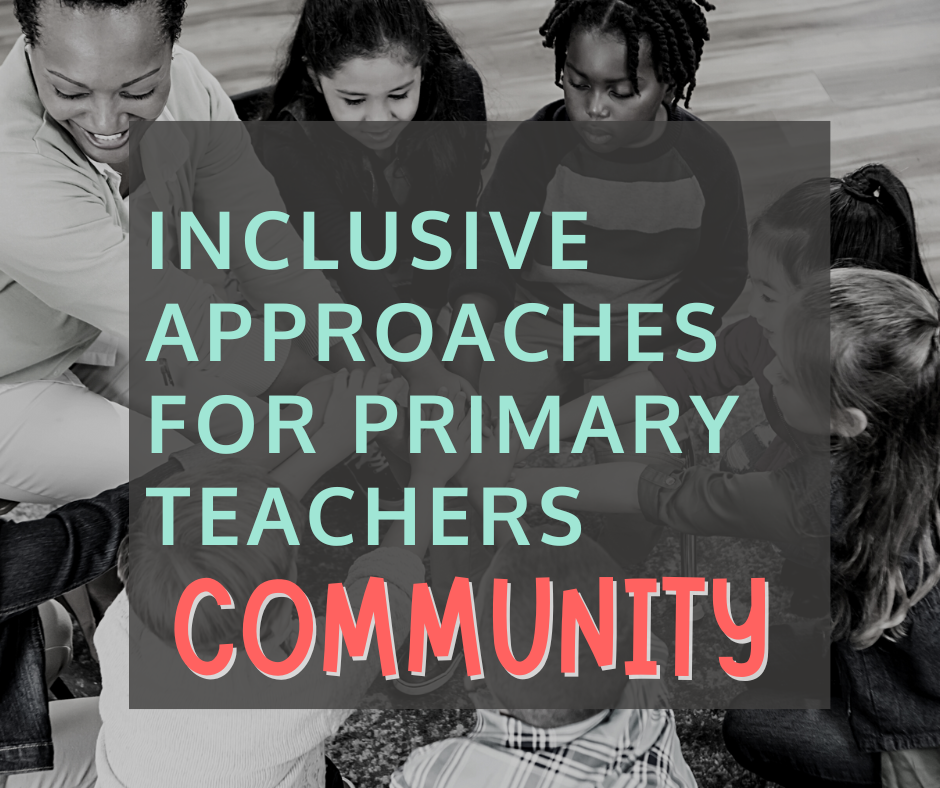Inclusive Approaches for Primary Teachers
Currently on pause
Course Programme
Part 1: Inclusive education & practices
In the first half of the course we will focus on inclusive education and practices. We’ll start by exploring our values around teaching and learning and consider the importance of inclusivity as we develop a set of inclusive principles. During the first three weeks our driving question will be: What are my values and principles and how can I maintain them in the classroom?
Week 3: Inclusive Practices
In week 3 we’ll examine various elements of inclusive practices and how we can incorporate these strategies into our own classrooms. We will explore Specific Learning Differences and what we can do to provide support for our learners whilst keeping them engaged and challenged.
Part 2: Inclusive approaches
In the second half of the course we will explore inclusive approaches. We’ll start with learner well-being and then we’ll look at different learner-centred approaches. During weeks 4 to 6 our driving question will be: How can I develop an inclusive approach that fits my values and principles?
Week 4: Learner well-being & engagement
In Week 4, we’ll explore learner wellbeing and how this affects engagement and motivation for learning. We’ll discuss the importance of Social and Emotional Learning and consider which strategies might work for our students.
Week 5: Inclusive approaches & methodologies
In the penultimate week, we’ll look at an overview of several learner-centred educational approaches that cater for different learner needs using the Inclusive Pedagogies Framework as a lens.
Week 6: An inclusive curriculum
We’ll end the course by looking at how to align our course content to standards and curriculum and consider key learning objectives and competencies. This week will be spent working on a project which will help you plan a unit where you try out a new approach in your classroom.
Michelle Worgan
Course Tutor
As a lifelong learner with a natural curiosity, I’ve spent a lot of my career reading, attending webinars and talks, and trying to discover new approaches for ELT teaching and language learning. I’m a published ELT author and I run regular training sessions and workshops at conferences and events.
The course includes:
🎬 Weekly input videos with activities on a course platform
💬 5 live guided discussion sessions*
✍️ 5 weekly reflection or homework tasks
👥1 group project to reinforce your learning*
📽️1 live project presentation session*
📗 A course workbook to take away at the end of the course
👋Pre-course introduction & reflection tasks
*only available for the Community option (see below)
Why I designed the course
Inclusion is a trending topic in the world of education. And I’m glad – it means that finally, learners whose needs may have been ignored, or worse, neglected, are now being considered.
But inclusion is a big word. It covers many different aspects of what we do in the classroom. It’s relevant to the way we manage our classrooms, the materials we use, and the support we provide to students.
There’s a lot of information out there but what you find rarely covers everything. So I decided to create this course. It includes an overview of the different areas of inclusion in the classroom. It outlines several approaches that I believe are more inclusive than traditional approaches. And it helps you think about where you might want to take action in your classroom or school.
This is a fantastic course for several reasons: Michelle creates a really open and supportive environment which promotes lots of interesting discussion; superb organisation means you receive lots of useful resources to prepare for each session and extend your own thinking; and it contains lots of sections that provide a really comprehensive knowledge base. As a materials author, I decided to do the course to learn about the experiences of teachers and help me understand what’s happening in the classroom. Not only did I achieve this, I also learned about methodologies and approaches that I can include in my writing. If you’re wondering whether to take the jump, I would strongly recommend you do!
This course is especially important for any teachers who may feel a bit overwhelmed by inclusion, as Michelle has set everything out in a way that is very easy to follow. The course has made me more organised in my effort to be inclusive and helped me to concentrate on individuals and their needs in my classroom. The course was a fabulous experience and I especially looked forward to the online meet-ups. I think the new six-week format will be an excellent addition to the course since the only problem for me was that I wanted to spend more time on everything.
I liked Michelle’s clear vision for a better educational model. I felt I was in capable hands at all times as she guided us through the course. She practised what she preaches and used a variety of interaction, including video and breakout sessions. Always clear and always making you think, I enjoyed the course immensely.
What will I learn?
At the end of the course, you’ll have a good idea of what factors need to be considered to make a classroom inclusive to a range of learners and needs. You will understand the benefits of a variety of inclusive approaches and the principles which underpin them. You’ll have thought about what action you can take to make your classroom more inclusive.
There are two formats for the course. Flexible is designed for self-study and Community is for those who prefer a group experience and would like tutor support.
The course will explore the following themes:
- Principles for inclusive learner-centred teaching approaches for young learners based on the Inclusive Pedagogies Framework.
- Strategies for teaching learners with specific learning differences.
- Learner well-being, Social and Emotional Learning & the inclusive classroom.
- An overview of learner-centred approaches & methodologies including PBL, inquiry-based learning, STEAM, play-based learning and nature-based learning.
- An inclusive curriculum and how to meet learning objectives when using a learner-centred approach.
FAQ
I’ve signed up for the course. What will happen next?
You’ll receive a welcome email from me confirming your place on the course. I’ll also send you a questionnaire to help me learn a little more about you and your experience. This will help me tailor the course content to your needs.
Where will the course take place?
The course will be 100% online. Live sessions will be held in Zoom. There will also be a community where you’ll be asked to share your homework tasks. You’ll receive a link to the community the week before the course starts.
How many people will there be on the course?
Normally there will be a maximum of twelve people on the course. In the live sessions, you will be asked to discuss some tasks in smaller groups.
You’re in Europe but I’m in a different time zone. Will I be able to attend the live sessions?
The time of the live sessions will be chosen according to the needs of the majority of participants and I will endeavour to choose a time that works for everyone. However, if you are not able to attend any of the sessions, they will be recorded for you to watch later.
How much does the course cost?
There are two pricing options – see the table below for details. Both options are available for the same cohort*
*For the Community option, we will need a minimum of four participants. If you choose this option but we don’t get the numbers, you will be automatically downgraded to Flexible and refunded the difference.
Flexible
Self-study at your own pace- Six week cohort-based course
- Drop in Q&A sessions
- Course workbook
- Payment plans (2 instalments)
- Guided workshops
- Group project
- *Excluding VAT. Payment plans may include surcharges
Community
With tutor & community support- Six-week cohort-based course
- 5 x guided workshops
- Online community
- Group project presentation session
- Course workbook
- Payment plans (3 x instalments*)
- *Excluding VAT. Payment plans may include surcharges
If you require a payment plan, please email me at michelle@michelleworgan.com






